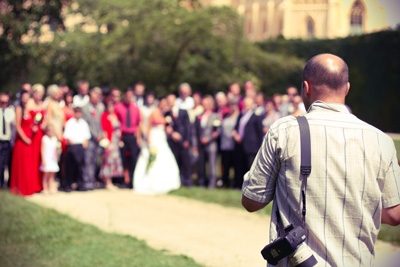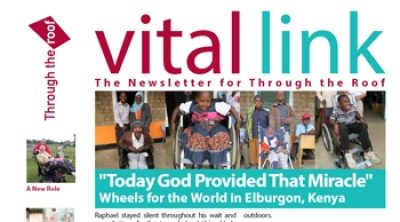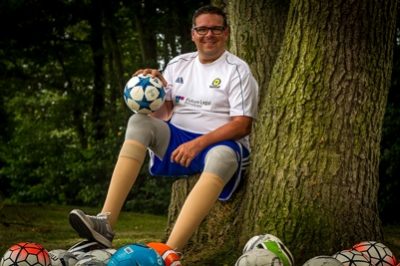Here Comes The Bride (Ros' Blog)

I was looking round the congregation at my church yesterday and thinking what a mixed bunch we are. The youngest present was about two years old, the oldest in his mid-eighties. There were singles, couples and families with children. There were people with physically able bodies and people with physical impairments. There were people who could walk unimpeded and those who relied on sticks or, in my daughter’s case, a wheelchair. There was a highly qualified lawyer and there were people with learning disabilities. There were people with very comfortable incomes and people who struggle hard to make ends meet. Interestingly, there wasn’t much ethnic diversity – but as a church we meet in two separate “hubs”, coming together for a joint meeting once a month, and I know that when we hold our joint meeting there are a variety of different nationalities, languages and ethnicities represented. All in all, we are a very diverse mix.
It’s great, too, that we all have a part to play, and all our contributions are equally valued. Three people had planned yesterday’s service, and each had a part to play, whether leading or speaking. But when something that was said struck a chord with the oldest member of the congregation, he was given the microphone so we could all benefit from his wisdom. When the two year old was running exuberantly around, not being the slightest bit naughty but being very noisy and stressing out his single mum who, after all, takes care of him all day every day without a break, one of the men came and scooped him up in his arms, gave him the attention he needed and played with him – as much an act of worship, to my mind, as anything else that went on that morning. And when my daughter leaned over to me and said, in her customary stage whisper, “Mummy sing ‘He is high and lifted up’,” the worship leader immediately picked up his guitar with the words, “Let’s respond to what Ellen just said,” and began to lead us all in her chosen song.
I grew up in a Christian tradition which laid great emphasis on the individual’s relationship with God and the need to be personally born again. Of course this is an important truth. Our starting place in our spiritual journey is in coming into a personal relationship with God through Jesus, and receiving the indwelling of the Holy Spirit. But it struck me, as I looked around that diverse bunch of people yesterday, that Christ lived, died and is coming again for one bride. He is not a polygamist with many spouses, but the husband of His one bride, the church. And so we are much more than a collection of individuals. We are, in some very real way, members of one another. We miss perhaps the crux of what God has planned for this world if we don’t recognise the very corporate nature of our faith, the fact that I am connected to you, and we are in some very real sense, one entity, just as we are one with Jesus through our union with Him. When Paul writes, “Rejoice with those who rejoice, and weep with those who weep, be of the same mind toward one another; do not be haughty in mind, but associate with the lowly” he is perhaps not so much issuing an instruction as writing a description of what it is to be the church, the one bride of the everlasting husband who is Christ.
When our brothers and sisters with physical, sensory or learning disabilities are sidelined and overlooked, when our faithful brothers and sisters in other parts of the world are persecuted, when internet pornography beguiles some of our number into immorality, when others among us live in unalleviated poverty, whatever circumstances wound the Bride of Christ, we don’t simply have a duty to reach out and help; we ourselves are also wounded because we are part of each other and all are affected by what affects each of us. Jesus will return one day for a bride, one entity, who is without spot or blemish. All that we experience here and now is intended to enhance our unity and to draw us closer to our Bridegroom, Jesus, so that when He returns the bride who awaits Him will be a reflection of His own perfection, and not simply a collection of individuals who each have their own relationship with Him, although those individual experiences of intimacy do all, of course, contribute to the love of the bride for her Bridegroom.
If you share Through the Roof’s heart to see disabled Christians taking their place within the bride of Christ, their experiences felt and shared by the rest of the body, why not consider becoming a Roofbreaker and helping your church to ensure that all its members, no matter what their abilities or limitations, play the full part for which God created them? For more details about how you can share in this ministry, follow this link.
Our Winter 2016 Newsletter

The Winter 2016 Vital Link Newsletter is now available for download - this issue contains stories from the Wheels for the World distribution in Eldoret, stories from volunteer leaders, details of TTR's 20th birthday plans, next year's holidays and mission trips and much more.
- Follow this link to download the Winter 2016 Vital Link (with Donor Form, and letter from Tim Wood, CEO) - right-click and select 'save' to save the file for later
 Please get in touch (on 01372 749955 or by following this link to email us) if you have any problems downloading this, or if you’d like to receive future newsletters by post or email.
Please get in touch (on 01372 749955 or by following this link to email us) if you have any problems downloading this, or if you’d like to receive future newsletters by post or email.
Summary of briefing on Lord Shinkwin’s Disability (Abortion Equality) Bill

Here's a summary of our briefing on Lord Shinkwin's Disability (abortion equality) bill and TTR's thoughts on the situation. The full briefing is available to download by following this link
Outline of the Bill
Baron Shinkwin, a disabled member of the House of Lords, has introduced a Private Member’s Bill called the Abortion (Disability Equality) Bill. The Bill proposes that the time limit for abortion of foetuses where there is a “substantial risk” of “serious handicap” should be brought into line with the time limit for non-disabled foetuses.
The law as it stands
Currently the abortion law in Great Britain excluding Northern Ireland allows for abortion at any stage of the pregnancy up to full term if the mother’s life or health is seriously endangered. It allows for abortion up to 24 weeks if there would be a risk to the physical or mental health of the mother or her existing children from having another baby. And it allows for abortion up to full term if there is a “substantial risk of serious handicap” to the foetus.
The effects of the law
In 2015 in England and Wales 3,213 late term abortions were carried out where the baby was deemed to be at substantial risk of “serious handicap”. This represents 2% of all abortions, although there is significant under-reporting of these abortions, and the true figure is likely to be appreciably higher. In Scotland in the same year there were 186 late term abortions for “serious handicap”.
The meaning of “seriously handicapped”
The law gives no definition of this term, and it is left to be determined by clinical judgement and accepted practice. People with personal experience of disability have tried to challenge abortions performed for relatively minor defects such as cleft lip and palate, but the courts have not upheld their views.
From this it would seem that the disability rights movement’s mantra of “nothing about us without us” is suspended in the area of deciding what constitutes a “serious handicap”. It is non-disabled members of the legal and law enforcement professions who decide what constitutes a “handicap” so serious that the unborn child would be better off dead, and the opinion of someone with actual experience of living with a similar or more severe disability counts for nothing.
In 1996 before the Abortion Act was passed, suggestions that it would lead to terminations on the grounds of relatively minor conditions such as cleft palate were described by Sir David (now Lord) Steel, the Bill’s sponsor, as “a gross calumny on the medical profession” and by other participants in the debate as “pure scaremongering”. These remarks seem naïve, if not disingenuous, in the light of the fact that in 2015 11 late term abortions were performed for cleft lip and palate.
The case for Lord Shinkwin’s proposed amendment
Over the past 5 years there has been a 56% increase in terminations after 24 weeks on the grounds of “serious handicap”. Taken over the past 10 years the figure is a 68% increase, and over the past 20 years a 271% increase.
The mainstay of Lord Shinkwin’s argument is that the law no longer allows discrimination against persons on the grounds of their disability. This is recognised by both the UK Equality Act and the European human rights legislation. To allow abortion up to full term of foetuses purely on the grounds of disability establishes in law a pernicious threat to the lives of disabled people.
Objections to Lord Shinkwin’s proposal
Most of the objections have come from people who believe that a woman has an absolute right over her own reproductive choices and that no one has the right to interfere with that.
Others contest that equality and disability legislation cover only the rights of living persons, and that under British law a foetus has no legal status independent of its mother. This is incorrect. A foetus does indeed have legal status and legal protection in respect of certain characteristics. An abortion cannot be performed on the grounds that the mother would be mentally distressed by having a baby of a particular gender, ethnicity, skin colour or sexual orientation. Disability is the only characteristic that is a particular target for discrimination.
Progress of Lord Shinkwin’s Bill
The Private Member’s Bill was first debated in the House of Lords on 25th May 2016 and was granted a second reading. This took place on 21st October 2016. The Bill passed its second reading, and will now proceed to the Committee stage (although no date has yet been set for this) followed by the Report stage, before receiving its third reading in the House of Lords. If it passes its third reading, it will then proceed to the House of Commons.
Through the Roof’s view
The Bible is clear that all of us are made in the image of God, that all of us are loved by God, and that God has a special place in His heart for those whom the world despises. God acknowledges Himself as the creator of those with and without disabilities and declares His knowledge of, and support for, the unborn.
The Bible also leaves us in no doubt that disabled people have a major role to play in the purposes of God. People with physical impairments, mental illnesses and life-limiting anxiety disorders all feature as some of the great champions of the Bible.
The most important message we can give to disabled people is that God created you because you are an essential component of the universe as He desired it to be. In what the world perceives as your weakness, He makes known His strength. In what the world perceives as your foolishness, He makes known His wisdom. Where the world perceives your disability as shame we, the people of God, bestow honour. As the Church we need what God supplies through you. Without you, God’s house is not full.
Through the Roof fully supports Lord Shinkwin’s Bill. We would welcome a world in which disability is not seen as a ground for abortion at any stage of pregnancy, but we recognise the pragmatism of Lord Shinkwin, in that it would be very difficult to get support in Parliament for a ban on all abortions for disability. We invite you to pray with us for the Bill’s success at all stages of its journey through Parliament, and to encourage your own MP to support it, so that in future there will be no discrimination against the unborn on the basis of disability.
Meet the Bravest of Britain! (Ros' Blog)

I recently had the privilege of talking to Mark McGowan who has just been awarded both the Community Champion award and the Bravest of Britain award in the Charles Holland Awards for Brave Britons 2016, sponsored by Amplifon. Mark is a minister who lives in Farnborough with his wife Jo and their children Millie, Ella and Caleb.
Hello Mark, and thank you for agreeing to talk to Through the Roof. Can you tell us a bit about your background?
I was born without fibula bones and had my lower legs amputated when I was eighteen months old. My parents got saved partly through that experience, and so I grew up in a Christian home as a result. I also grew up loving football!
When and how did you become a Christian yourself?
Through my disability I always had a relationship with God, but in my late teens I really developed that relationship with Him through missing so much schooling. I backslid between the ages of seventeen and nineteen, but through meeting Jo who later became my wife, I started really following Jesus seriously.
What difference did knowing Jesus make to your life?
I knew I had someone to speak to twenty-four/seven. I had an inner peace to cope with my disability, to know who I was and why I was like I was.
What led you into full time Christian ministry?
Three weeks after Jo and I were married, we were approached by our church and invited to help with the youth work. We prayed and felt it was right to say yes. We ran the young people’s work voluntarily for four or five years and then the senior pastor asked us if we would take on the ministry to children and young people as a paid role. Over time the role has developed. We’re no longer working with the church’s children and young people, but ninety-nine percent of what I do is community ministry, reaching out to the children outside of church mainly through football coaching. I’m doing much more outside the four walls of church now, reaching out into the community.
How did you get into Faith and Football?
I’ve always loved football, but I couldn’t play as a child because of my disability, which was difficult. I became aware of a need in quite a deprived area of Farnborough and wanted to do something about it. I was put in touch with Faith and Football in Portsmouth which was started by Linvoy Primus. With the help of Faith and Football I started a league in this part of Farnborough. We now have fifty-eight children registered with us, and through them we’re reaching a total of over forty families. This has opened doors into local schools, and given opportunities for discussions with local people in the community.
What motivates you to serve the community in this way?
I just want to share the love of Jesus to local children and the community. I believe Jesus should be out in the community, not just in church buildings.
You recently achieved the amazing feat of climbing Ben Nevis to raise funds for Faith and Football. What made you decide to do it?
Last year on New Year’s Eve we got together with friends and we just started discussing the coming year – shall we do something challenging? And I Googled the highest mountain in the UK and found it was Ben Nevis, so I decided to climb it. I prepared by doing stamina walks and long walks getting accustomed to steep gradients and getting used to walking with crutches, which I would need on the climb. I did eight months of training. On one training walk one of my prosthetic legs snapped and I had to be carried back to the car. I had blisters and sweat issues around the prostheses, things any amputee faces. The climb was the hardest thing I’ve ever done in my life. From New Year’s Day onwards I had confessed out loud every single day that I was going to climb Ben Nevis on October 3rd. On the day the weather was absolutely perfect. There was no cloud, but it was a very long, very hard climb. It took us seven and a half hours to the summit and six hours back down. Some of the non-disabled people in the team struggled with it. At the summit I was so blessed to get enough phone signal to be able to ring Jo and share the experience with her, which was special. I felt totally overwhelmed but really proud of myself. Coming down the last two hours were in the dark, which was quite scary. I just felt relieved to get back to the minibus.
Tell us about winning the Amplifon Charles Holland Award.
I was nominated by Paul, one of the team who climbed Ben Nevis with me. He nominated me in the Community Champion category, which is awarded to a member of the public who has made a significant or inspirational contribution to their community. I received a call to say I had been shortlisted and inviting me to attend the ceremony. I was quite humbled to hear the other nominees’ stories. It was really unexpected to win the Community Champion award, but I was overwhelmed to also win the overall Bravest of Britain.
Many people reading this blog will be disabled Christians who could use some encouragement. What would be your message to them?
Know who you are in God. God has a perfect plan for you. I love Jeremiah 29.11 – “For I know the plans I have for you says the Lord, plans to prosper you and not to harm you, to give you a future and a hope.” At times I ask the question, “Why God?” but deep down I do know why, because I’m able to share my story with others and I know God has a perfect plan for my life.
If you had the opportunity to be miraculously healed tomorrow, would you take it?
No. Because God has made me who I am.
Thank you so much for sharing your story with Through the Roof.

